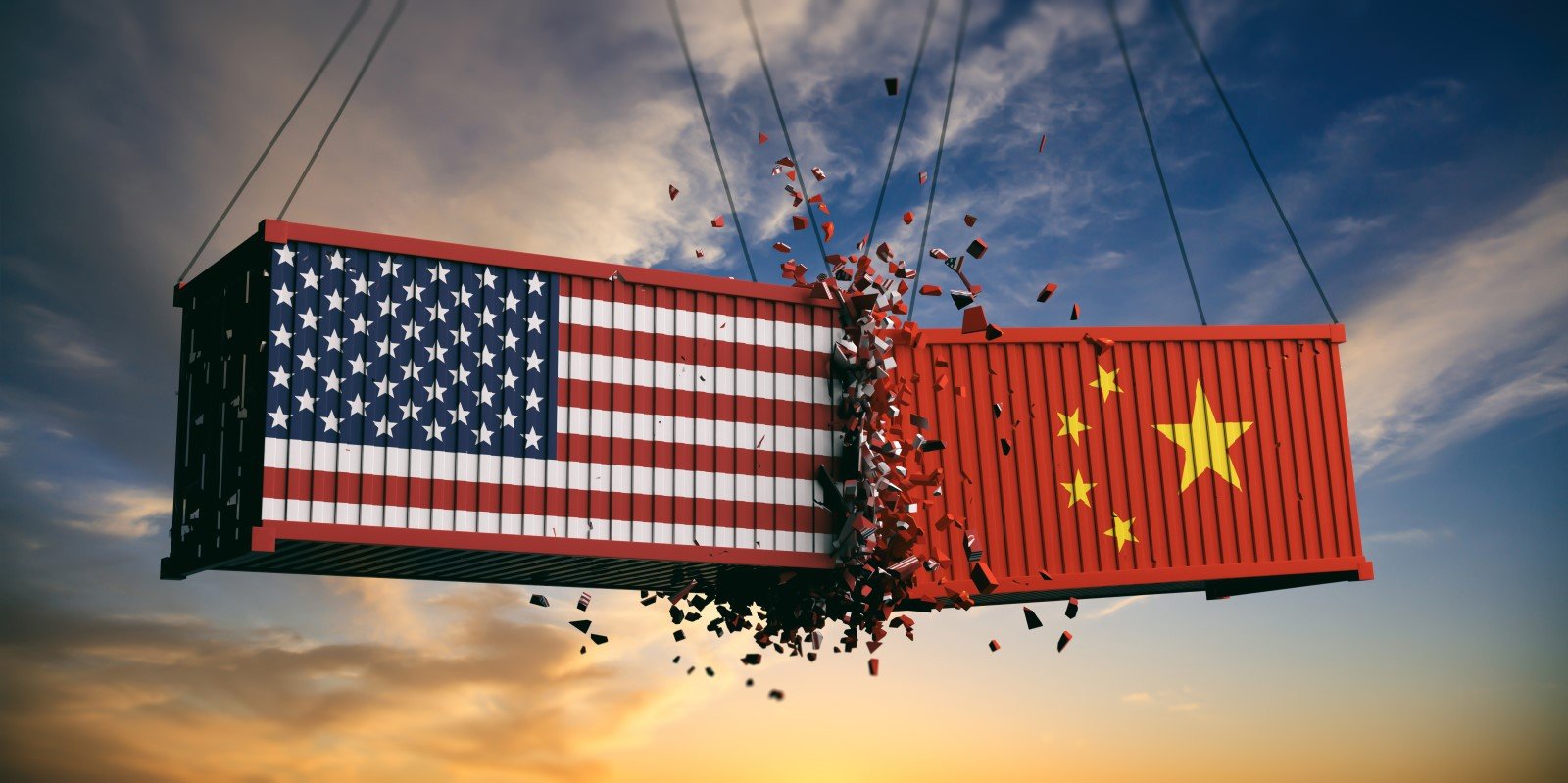US-China Trade War: 80% Tariff Proposal Shakes Stock Market

Table of Contents
The 80% Tariff Proposal: A Deep Dive
The proposed 80% tariff represents a significant escalation in the ongoing US-China trade war. While the exact list of affected goods may vary, the proposal targets a wide range of products, impacting numerous sectors. This dramatic increase aims to pressure China into significant concessions in trade negotiations. The political motivation behind such a high tariff likely stems from a desire to address the US trade deficit with China, protect American industries, and exert leverage in ongoing negotiations.
- Key Industries Affected: Technology (semiconductors, smartphones), manufacturing (textiles, machinery), and agriculture (soybeans, pork) are among the sectors facing the most significant disruption.
- Potential Economic Consequences: Consumers can expect significantly higher prices for imported goods, potentially fueling inflation. Job losses in industries reliant on Chinese imports are a serious concern, particularly in manufacturing and retail.
- Companies Significantly Impacted: Numerous multinational corporations with significant supply chains in China would be directly affected. Specific companies heavily reliant on Chinese imports or manufacturing would experience major disruptions and potential profit losses.
Stock Market Reactions to Increased Trade Tensions
The announcement of the potential 80% tariff immediately triggered a significant sell-off in global stock markets. The Dow Jones Industrial Average, the S&P 500, and the Nasdaq Composite all experienced substantial percentage drops in the days following the announcement [Insert specific percentage drops and dates]. This demonstrated a clear lack of investor confidence.
- Affected Indices: The Dow Jones, S&P 500, and Nasdaq all saw considerable volatility, reflecting investor concerns about the economic ramifications of escalating trade tensions.
- Market Volatility: The days following the announcement witnessed heightened market volatility, with sharp fluctuations in stock prices reflecting investor uncertainty.
- Investor Sentiment and Safe Havens: Investors reacted by fleeing to safer assets, such as gold and government bonds, indicating a risk-averse sentiment driven by the uncertainty surrounding the trade war.
Global Economic Fallout from Escalating Trade War
The proposed 80% tariff doesn't just affect the US and China; its impact ripples across the global economy. Global supply chains, intricately woven together, will face significant disruption. Many countries rely on either US or Chinese goods, creating a complex web of interdependence.
- Impact on Global GDP Growth: The International Monetary Fund (IMF) and other organizations have already warned of a potential slowdown in global economic growth due to the trade war. The 80% tariff could exacerbate this, leading to a more significant contraction.
- Implications for Other Trading Partners: Countries that rely on trade with either the US or China will experience knock-on effects, potentially facing decreased demand or higher input costs.
- Retaliatory Tariffs: China is likely to respond with retaliatory tariffs, further intensifying the trade war and potentially triggering a damaging cycle of protectionist measures.
Mitigation Strategies and Potential Outcomes
To lessen the impact of the tariffs, governments might consider several mitigation strategies. However, the effectiveness of these strategies is uncertain. The likelihood of a trade deal resolving these tensions remains unclear.
- Government Intervention: Government subsidies or bailouts for affected industries could offer some relief, but these measures could also distort markets and create long-term inefficiencies.
- Alternative Trade Agreements: Exploring and forging new trade agreements and partnerships could help to diversify supply chains and reduce dependence on either the US or China.
- Potential Outcomes: The outcome of the US-China trade war remains highly uncertain. Scenarios range from a negotiated settlement to a prolonged period of heightened trade tensions with significant economic consequences.
Conclusion: Navigating the Unsettled Waters of the US-China Trade War
The proposed 80% tariff represents a significant escalation in the US-China trade war, with potentially severe consequences for stock markets and the global economy. The uncertainty and volatility surrounding this situation are considerable. The impact on various industries, investor confidence, and global growth remains a major concern. To navigate this complex situation, it’s crucial to monitor the US-China trade war closely and understand the potential impacts of the 80% tariffs. Stay informed about this evolving situation by following reputable financial news sources and conducting thorough research. Understanding the intricacies of the US-China trade war and the implications of this 80% tariff proposal is crucial for informed decision-making in these uncertain times.

Featured Posts
-
 Multiple Car Break Ins Reported At Elizabeth City Apartment Complexes
May 10, 2025
Multiple Car Break Ins Reported At Elizabeth City Apartment Complexes
May 10, 2025 -
 Metas Whats App Spyware Verdict A Costly Setback
May 10, 2025
Metas Whats App Spyware Verdict A Costly Setback
May 10, 2025 -
 Ice Protest Leads To Newark Mayor Ras Barakas Arrest
May 10, 2025
Ice Protest Leads To Newark Mayor Ras Barakas Arrest
May 10, 2025 -
 Uy Scuti Album Update Young Thug Teases Potential Release Date
May 10, 2025
Uy Scuti Album Update Young Thug Teases Potential Release Date
May 10, 2025 -
 Dogecoins Recent Dip Examining The Correlation With Tesla And Elon Musk
May 10, 2025
Dogecoins Recent Dip Examining The Correlation With Tesla And Elon Musk
May 10, 2025
